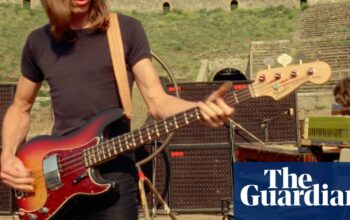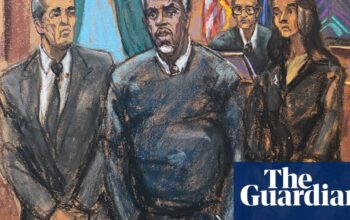Benjamin Gibbard is aware of your nostalgia for Death Cab for Cutie. For nearly a year he’s been living it, performing both the band’s breakout album Transatlanticism and Give Up, the sole release from his side project the Postal Service, back to back and in full to mark 20 years since their release. For some artists, an anniversary tour might register as an acknowledgment that their best days are in the past. For Gibbard, it’s a privilege to be able to relive them.
When the Give Up and Transatlanticism double-header kicked off last September, it was described (by Pitchfork, the defining arbiter of mid-2000s music) as “peak millennial nostalgia, in the best way”. Gibbard, who turns 48 on Sunday, had anticipated a warm reception, knowing the special place both albums occupy for fans. “You’re only going to a show like that if you have a vested interest in the album – or albums – that are being performed,” he says. “But I don’t think that I really had a sense of how cathartic it would be, for the audience and for all of us.”
Today, Gibbard and Death Cab for Cutie define the moment in the mid-2000s when a new wave of alternative bands were just starting to enter the mainstream. Transatlanticism, released in October 2003, began Death Cab’s ascent, buoyed by singles The Sound of Settling and Title and Registration, two of their best-loved songs, both widely used in soundtracks – most famously, as Gibbard points out, “a little show called The OC”. Seth Cohen, Orange County’s sole indie kid, remains their best-known fan, cementing the band’s enduring association with 00s teenage angst.
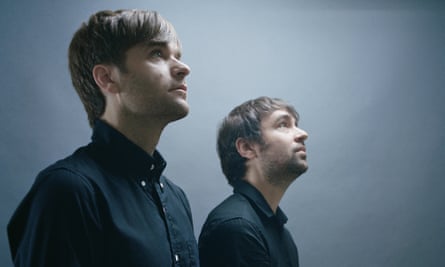
As they were coming up, Death Cab were often tagged as emo, a reflection less of their music – distinguished, within the indie scene, by their instantly hummable melodies and sophisticated arrangements – than Gibbard’s plaintive voice and emotionally wrought lyrics. In Title and Registration, a rummage in a car’s glove compartment triggers a spiral over lost love and the etymology of “glove compartment”. Gibbard acknowledges Death Cab’s “formative” role for many fans, “when they were younger and had, you know …” – his voice suggests air quotes – “‘big feelings’”.
The band have grown up and moved on. Their eighth studio album, Kintsugi from 2015, marked Gibbard’s divorce from New Girl actor Zooey Deschanel after two years of marriage (and also presaged the departure of founding guitarist Chris Walla, citing dissatisfaction with the band’s musical direction). They released their 10th album, Asphalt Meadows, in 2021. But Gibbard is under no illusion: it is fans’ enduring fondness for Transatlanticism and its 2005 follow-up Plans, Death Cab’s “tombstone albums”, that are filling the venues today.
“I don’t say that in a defeatist or self-effacing way,” he adds. “It’s a true honour to have made music that has become so important to some people.” With that relationship comes “an obligation”, Gibbard continues, sincerely, to ensure that concert-goers leave “feeling that they got the experience that they wanted”.
The period that the tour looks back on was transformational for him, too. Before Transatlanticism, Death Cab had a cult following built on live shows. Having made the band their job in late 2000, “we were touring a lot to pay our rent”, says Gibbard. He recalls long stints on the road, writing their first three albums during gaps in the schedule.
By late 2001, when they released The Photo Album, the band were burnt out. “We needed to take some time away, to just reset and rekindle the love of doing this band,” says Gibbard. For the first time since 1998, and their debut album Something About Airplanes, Death Cab took a break. “I found myself with ample time … to creatively wander, without a deadline.”
In fact, Gibbard was committed to not only writing what would become Transatlanticism, but also a project with electronic musician Jimmy Tamborello. The two had met when Gibbard contributed lyrics and vocals to a track on Tamborello’s debut album as Dntel. They expanded this collaboration as the Postal Service, with Gibbard writing melodies to music that Tamborello mailed over on burned CDs. (The technology for filesharing did exist, Gibbard says, but “we were not technologically advanced enough to figure that out”.) Through 2001, Gibbard worked on both albums simultaneously. “It didn’t feel like a herculean undertaking,” he says – in part because, with Give Up, he was “writing in reaction” to someone else’s music. Tamborello’s pacy glitch-pop and layered synthesiser beds suggested lyrics and imagery to Gibbard that would never have come out of the writing he did for Death Cab. “It was a really creatively fruitful time … For the first time in my career, I was working with somebody who was doing a lot of the heavy lifting.”
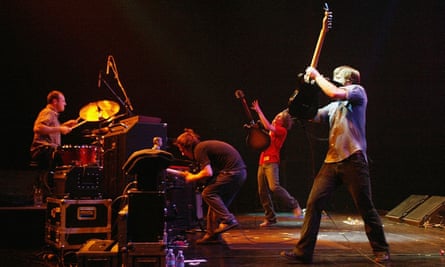
Today, Give Up is seen as a watershed album for breaking down the divide between rock music and electronica; certainly, its influence was acute in the following decade’s indie pop. But Gibbard demurs from taking credit. He and Tamborello had been inspired by 80s pop bands such as the Human League and Depeche Mode, as well as bands on the independent German electronic label Morr Music. Gibbard recalls seeing the Notwist tour their 2002 breakthrough album Neon Golden and telling his Death Cab bandmate Jason McGerr: “This is the future.” In terms of plugging the indie rock playbook into Ableton, “the Germans were doing it before we were,” Gibbard says.
The pair had no idea that Give Up would make an impression beyond their most committed fans, Gibbard says. “There was no pressure, because we didn’t think anybody was going to care.” Released in February 2003, it ended up being the Seattle label Sub Pop’s second-biggest album ever at the time (after Nirvana’s debut Bleach).
Single Such Great Heights became an American indie standard, inspiring numerous covers, most notably a version by Iron & Wine that appeared on the era-defining soundtrack of indie drama Garden State. That’s one song, Gibbard says, that he would “never in a million years” have written for Death Cab for Cutie; he remains incredulous about its success. “It has just the most asinine, positive lyrics that I think I’ve ever written. They felt appropriate for the music … but if you just put them on a page, I’m almost kind of embarrassed about them – they’re so not serious, so light.”
after newsletter promotion
For all Death Cab’s association with adolescence, the band has always sought to balance emotion and introspection with irony and self-awareness. “Any attempt to write something that open-hearted with Death Cab … either I’ve self-censored it, or it’s tended to be met with such derision that I haven’t tried it again,” says Gibbard good-humouredly. “Just reacting to Jimmy’s upbeat bleeps and bloops – that kind of gave me permission.”
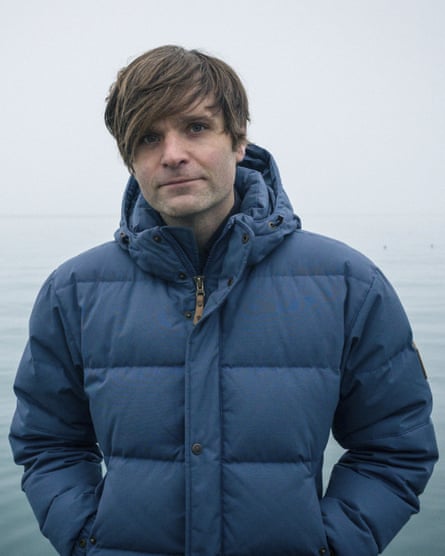
In fact the same relationship that Gibbard wrote the giddy Such Great Heights about also later inspired Tiny Vessels, from Transatlanticism, defined by its ruthless refrain: “You are beautiful, but you don’t mean a thing to me.” Gibbard laughs to be reminded of those extremes: “We contain multitudes, right? Some relationships, they ascend quickly, and then they come crashing down quickly afterwards – the two poles of a mid-20s relationship.”
Revisiting his twentysomething self each night certainly encourages a “healthy sense of self-deprecation”, Gibbard says. “You have to live with the understanding that you wrote some things when you were 21 that you probably wouldn’t write today – and that’s fine.”
The world has changed, too. In 2004, Death Cab were among dozens of artists (including Bruce Springsteen, the Chicks – then still called the Dixie Chicks – and Pearl Jam) to play Vote for Change, a tour held in swing states to boost the vote for John Kerry against George W Bush. It’s hard to picture such a united front assembling ahead of this year’s election, even against Trump. “Culture is so splintered now,” agrees Gibbard. Even at the time, when Death Cab were giddy about travelling on Pearl Jam’s private jet and signing to Atlantic Records, it felt like the moment was passing. “One of the reasons we would never get a Live Aid today is because what people are trying to accomplish with their activism is more specific.”
Two weeks after our interview, the public Spotify profile of Trump’s running mate JD Vance is apparently unearthed, revealing him to be a Death Cab fan. Founding member Walla responds on X, pointing out the discrepancy between those “empathetic and open” songs and Vance’s politics.
But Gibbard, although avowedly anti-Trump, is content in his distanced view of popular culture. Sober since 2008, his passion now is for ultra-running, taking him deep into the wilderness around Seattle. Occasionally, he is recognised by a fan, and relishes their “fucking hilarious” confusion: “They’re not used to seeing me 20 miles out in the middle of nowhere.”
Death Cab for Cutie and the Postal Service play OVO Hydro Glasgow, 23 August; Utilita Arena, Cardiff, 24 August; All Points East festival, London, 25 August.
Source: theguardian.com
